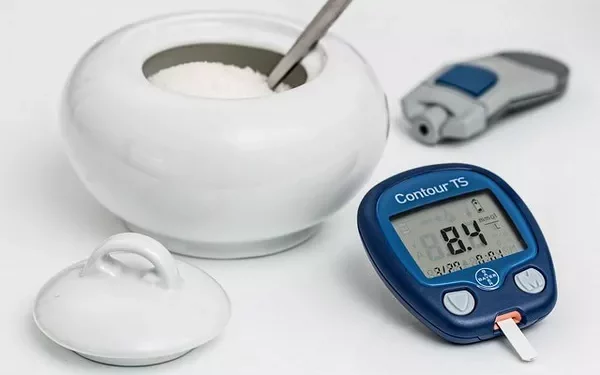Hypoglycemia, commonly referred to as low blood sugar, is a condition where blood glucose levels fall below normal. It is categorized into different levels based on severity. Level 2 hypoglycemia, also known as severe low blood sugar, is a critical condition that demands immediate attention. This article delves into the nuances of level 2 hypoglycemia, its causes, symptoms, management, and prevention strategies.
Understanding Blood Sugar Levels
To comprehend level 2 hypoglycemia, it’s essential to understand normal blood sugar ranges. For most individuals, normal fasting blood glucose levels range from 70 to 100 mg/dL (3.9 to 5.6 mmol/L). After meals, these levels typically rise but generally remain below 140 mg/dL (7.8 mmol/L). Hypoglycemia occurs when blood sugar levels drop below 70 mg/dL (3.9 mmol/L).
Hypoglycemia is classified into three levels:
Level 1 Hypoglycemia: Blood glucose levels are between 54 and 70 mg/dL (3.0 to 3.9 mmol/L). This stage may be asymptomatic or accompanied by mild symptoms.
Level 2 Hypoglycemia: Blood glucose levels drop below 54 mg/dL (3.0 mmol/L). This stage is more severe and often presents with significant symptoms.
Level 3 Hypoglycemia: This is the most severe form and is characterized by altered mental status and/or physical incapacity, requiring assistance from another person for recovery.
Causes of Level 2 Hypoglycemia
Several factors can lead to level 2 hypoglycemia, particularly in individuals with diabetes who use insulin or other blood glucose-lowering medications.
Medications: Insulin and sulfonylureas are the most common culprits. Overdosing, mistiming doses, or not adjusting doses appropriately in response to changes in diet or physical activity can cause severe hypoglycemia.
Dietary Factors: Skipping meals, eating less than usual, or consuming alcohol without food can precipitate hypoglycemia. Carbohydrates are the primary source of glucose; insufficient intake can lead to low blood sugar levels.
Physical Activity: Exercise increases insulin sensitivity and glucose uptake by muscles. Unplanned or vigorous physical activity without proper adjustment of food intake or medication can result in hypoglycemia.
Illness: Acute illnesses, especially those affecting the gastrointestinal system, can alter food intake and medication absorption, increasing the risk of hypoglycemia.
Hormonal Imbalances: Conditions affecting hormone levels, such as adrenal insufficiency or hypothyroidism, can impact blood glucose regulation and contribute to hypoglycemia.
Symptoms of Level 2 Hypoglycemia
Recognizing the symptoms of level 2 hypoglycemia is crucial for timely intervention. Symptoms can vary from person to person and may include:
Adrenergic Symptoms: These are related to the release of adrenaline (epinephrine) and include shakiness, sweating, palpitations, anxiety, and hunger.
Neuroglycopenic Symptoms: These result from the lack of glucose in the brain and include confusion, difficulty concentrating, irritability, dizziness, headache, blurred vision, and weakness.
Severe Symptoms: If untreated, level 2 hypoglycemia can progress to seizures, unconsciousness, and in extreme cases, coma or death.
Management of Level 2 Hypoglycemia
Immediate and effective management of level 2 hypoglycemia is essential to prevent serious complications. The following steps outline the standard approach:
Immediate Treatment: The priority is to raise blood glucose levels quickly. Consuming 15-20 grams of fast-acting carbohydrates is recommended. Options include glucose tablets, gel, or sugary drinks such as juice or regular soda.
Rechecking Blood Glucose: After 15 minutes, blood glucose levels should be rechecked. If they remain below 70 mg/dL (3.9 mmol/L), another 15-20 grams of fast-acting carbohydrates should be consumed.
Long-Acting Carbohydrates: Once blood glucose levels have returned to normal, consuming a snack or meal containing complex carbohydrates and protein can help stabilize blood sugar and prevent recurrence.
Glucagon Administration: For individuals unable to ingest carbohydrates orally due to confusion or unconsciousness, a glucagon injection is essential. Glucagon kits are available for emergency use, and caregivers or family members should be trained in their administration.
Medical Assistance: In cases of severe hypoglycemia where the individual is unconscious or experiencing seizures, immediate medical assistance is required. Emergency services should be contacted promptly.
Preventing Level 2 Hypoglycemia
Preventing level 2 hypoglycemia involves a multifaceted approach, focusing on medication management, dietary planning, and lifestyle adjustments.
Medication Management: Regular consultation with healthcare providers to review and adjust medication dosages is crucial. Continuous glucose monitoring (CGM) systems can provide real-time feedback and help in titrating insulin or other medications.
Dietary Planning: A balanced diet with regular meals and snacks can prevent blood glucose fluctuations. Counting carbohydrates and understanding their impact on blood sugar levels are fundamental skills for individuals with diabetes.
Exercise Planning: Physical activity should be planned and coordinated with food intake and medication. Monitoring blood glucose before, during, and after exercise can help in making necessary adjustments.
Education and Awareness: Individuals with diabetes and their caregivers should be educated about the signs and symptoms of hypoglycemia, how to treat it, and the importance of regular monitoring.
Routine Monitoring: Frequent blood glucose monitoring, particularly before and after activities that could lower blood sugar, is essential. CGM systems can provide valuable insights and early warnings of impending hypoglycemia.
Role of Healthcare Providers
Healthcare providers play a critical role in managing and preventing level 2 hypoglycemia. Their responsibilities include:
Patient Education: Educating patients about the causes, symptoms, and management of hypoglycemia. This includes teaching carbohydrate counting, proper use of glucose meters and CGM systems, and emergency response techniques.
Medication Management: Regularly reviewing and adjusting medications to minimize the risk of hypoglycemia. This involves considering factors such as age, kidney function, and comorbidities.
Lifestyle Counseling: Advising patients on healthy lifestyle choices, including diet and exercise, and how to balance these with their treatment regimen.
Support and Follow-Up: Providing ongoing support and regular follow-up to ensure that patients are adhering to their management plan and making necessary adjustments.
Technological Advances in Hypoglycemia Management
Technological advancements have significantly improved the management of hypoglycemia. Continuous glucose monitoring (CGM) systems and insulin pumps are two key innovations.
Continuous Glucose Monitoring (CGM): CGM systems provide real-time glucose readings and trend data. They alert users to impending hypoglycemia, allowing for timely intervention. Some CGM systems can communicate with insulin pumps to adjust insulin delivery automatically.
Insulin Pumps: Insulin pumps deliver continuous subcutaneous insulin infusion, mimicking the body’s natural insulin release. Advanced pumps can integrate with CGM systems to create a closed-loop system, also known as an artificial pancreas, which automatically adjusts insulin delivery based on glucose levels.
Smart Insulin Pens: These devices can calculate and track insulin doses, helping users avoid dosing errors that could lead to hypoglycemia.
Research and Future Directions
Ongoing research is focused on improving the understanding and management of hypoglycemia. Areas of interest include:
Hypoglycemia Unawareness: Some individuals lose the ability to recognize the symptoms of hypoglycemia, a condition known as hypoglycemia unawareness. Research is exploring ways to restore symptom awareness and develop better predictive tools.
Advanced Insulin Formulations: Developing insulin formulations that mimic physiological insulin release more closely could reduce the risk of hypoglycemia.
Alternative Therapies: Investigating non-insulin-based therapies that can control blood glucose levels without causing hypoglycemia.
Personalized Medicine: Tailoring treatment plans based on genetic, metabolic, and lifestyle factors to minimize the risk of hypoglycemia.
See also: What to Take for Hypoglycemia
Conclusion
Level 2 hypoglycemia, or severe low blood sugar, is a serious and potentially life-threatening condition that requires prompt recognition and treatment. Effective management involves a combination of medication management, dietary planning, lifestyle adjustments, and continuous monitoring. Education and support from healthcare providers are essential in empowering individuals with diabetes to manage their condition and prevent severe hypoglycemic episodes. With ongoing research and technological advancements, the future holds promise for even better strategies to prevent and manage hypoglycemia, improving the quality of life for individuals with diabetes.
Related topics:
Why Does Hypoglycemia Cause Shaking?


























